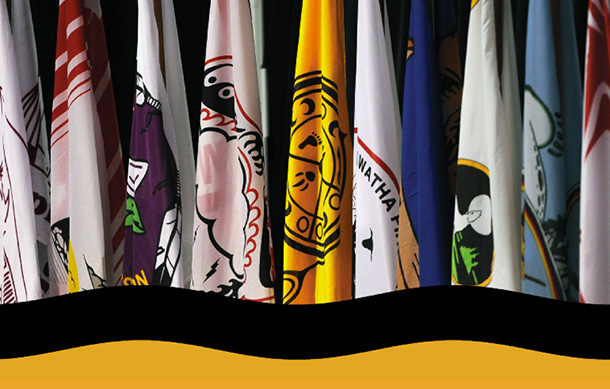
by Xavier Kataquapit
ATTAWAPISKAT – How hard is it to be a Chief of a First Nation? Well, as far as I can see it is not an easy trail. Anyone who decides to become the leader of his or her First Nation community or run for Chief positions nationally, provincially or regionally has to have a lot of skills to draw from, be well grounded and ready to develop a very tough skin.
Most of my people and in particular those who come from remote First Nations have had to develop survival skills to live and exist on the land while also learning to deal with the non-Native culture. This is no easy task because many of us have had on again and off again experiences in the education system in our communities or in cities and towns to the south. Many of us were born and raised with our language so that English was our second tongue. Life was often very difficult for us and we had to cope with alcoholism, addictions and racism. So, just to be able to deal with all of that and arrive at a point where we would want to step out into the limelight to lead a community or national or provincial political organization is more or less miraculous.
Many of my friends I grew up with have had so much to deal with and some of them left this world in their teens. Thirty years ago most of our remote First Nations were living in third world conditions with no indoor plumbing, no clean and dependable water sources, little employment and poor education opportunities. Things have changed over the years but not enough to provide for healthy, prosperous and well functioning communities. There is a housing crisis in remote First Nations, addictions and alcoholism is killing us, health care is not sufficient and widely available, some employment has developed but we have fallen behind in terms of education and training.
You would think that maybe part of the solution would be for people to simply leave these remote First Nations and live a better life on the outside. However, most people just don’t have the necessary skills to cope with that, they don’t have a strong education background, they are compromised in mind, body and spirit because of generations of addictions, abuse and a colonial type of racism. Life in the outside world is not like it is shown on television sitcoms where everybody mainly is living in wonderful homes, in friendly neighbourhoods and working at easy to get and high paying jobs. Much of the time when we as remote First Nation people move out to the south we are drowned in debt because we have not learned how to deal with the money system, we experience racism, our self esteem is compromised, we turn to alcohol and drugs for immediate relief from it all and there goes our dreams of living in Disney Land.
So, how on earth do some of us actually make it to the point where we have enough strength, skills and self esteem to become leaders. It is a long and hard road. When you see our First Nation leaders rise to talk at an event or deal with a group of national or provincial politicians and government bureaucrats or sit with academics and business people to figure something out … you should understand just how much work has gone into preparing for that day.
I commend all of my people who manage to make it through all of life’s obstacles and instead of taking an easy trail they decide to step up and take on leadership roles. I know so many of our northern Chiefs on a personal basis and I can tell you they are real survivors and they constantly deal with many life issues and their own histories to be able to find the strength, passion and determination to carry on. Too often people in their communities are banging them over the head and stabbing them in the back.
Much of the time these leaders are challenged, berated and undermined by the people they represent. Mind you at times perhaps some are deserving of harsh criticism but most of the time it is due to the anger, frustration and sadness that First Nation communities have to deal with.
Sometimes we expect way too much from our leaders and we want a few hundred years of neglect and dysfunction to resolve in short time. Perhaps from time to time when we are acting life wolf packs who turn on one of its own, we should remember that our children and younger generation is watching and learning our ways. It would be better for us to put the effort into electing the very best people we can from our communities to positions of leadership and give them the benefit of the doubt from time to time. Assist them when we can with a little support and help them to represent us as well as they can. Being a Chief is not easy and we should understand that.
www.underthenorthernsky.com







